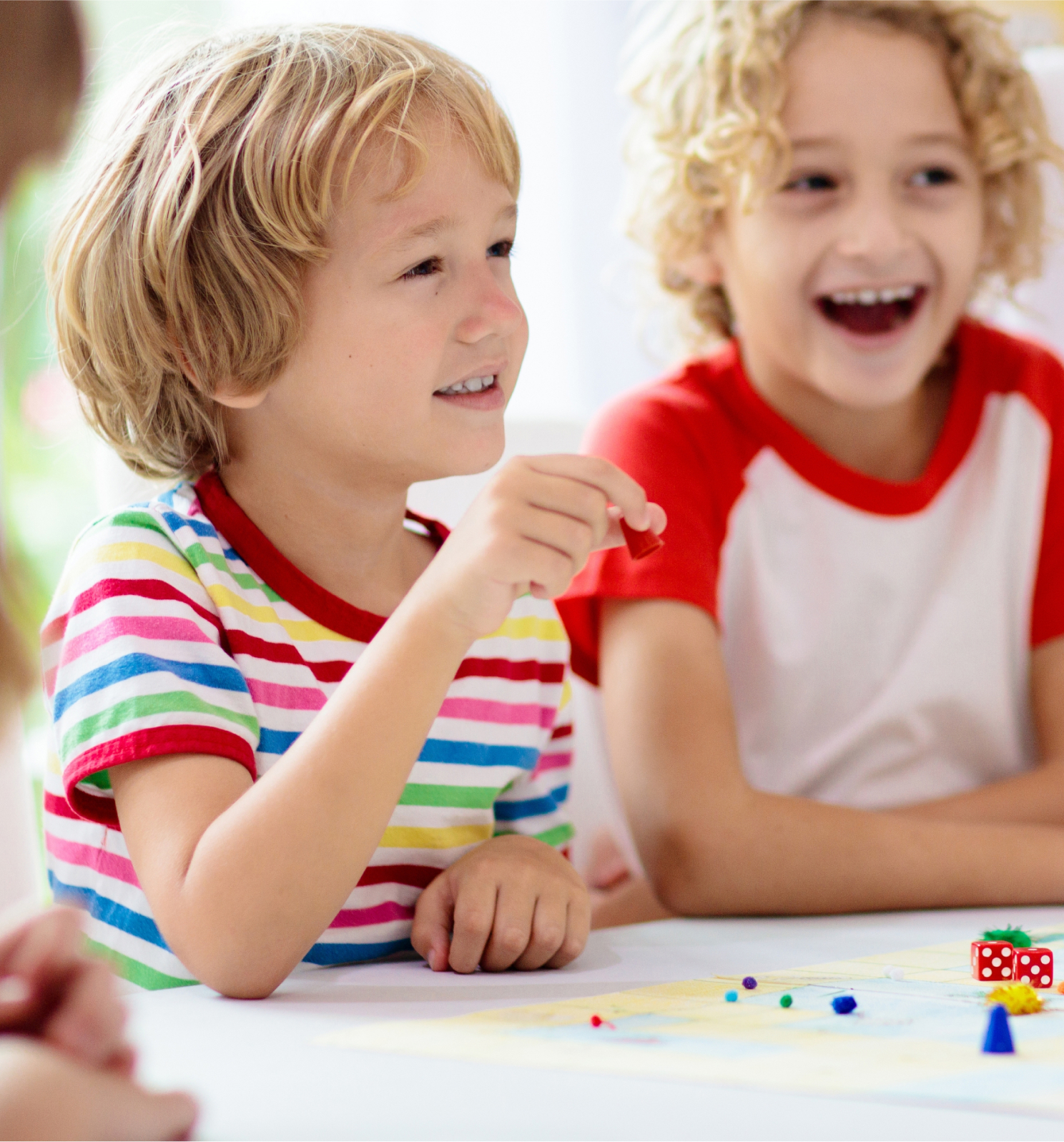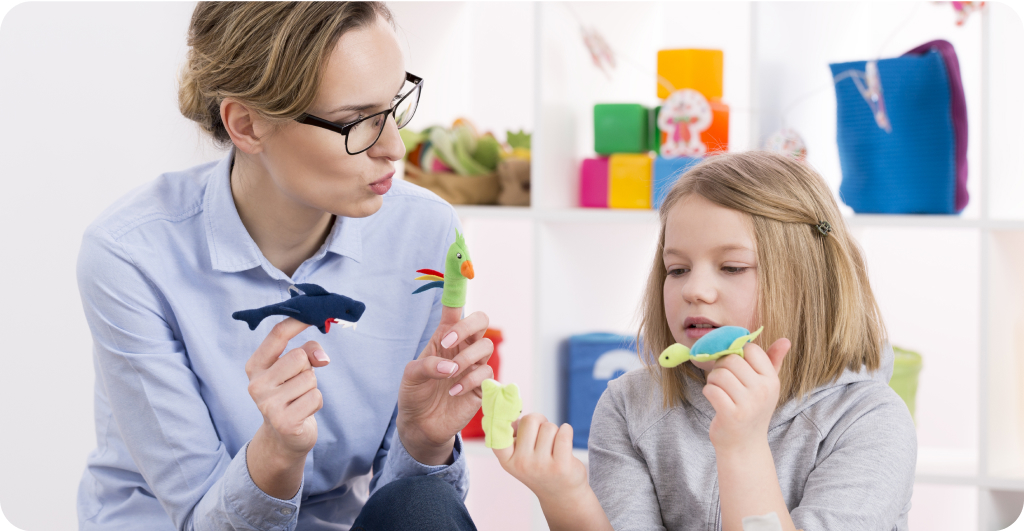Starting a speech journey can be overwhelming.
We’re here to support you and your child.
We’ll guide and support you and your child throughout their journey.

Empathy, expertise & excellence distinguish BSP
Everything we do comes from a place of care. We draw on our expertise, understanding and creative thinking to tailor innovative speech solutions for your child, while supporting your family.
Individually tailored speech pathology solutions

Speech
How clearly we speakSome children and teens have trouble speaking clearly. There may be certain sounds that they cannot say yet or they may swap sounds in words (e.g. saying ‘tat’ instead of ‘cat’). This can make it hard for them to communicate with their peers and express their wants and needs. They may also have difficulty learning to read and write.
A professional assessment is important to identify whether therapy is required to support your child’s speech sound development. Our experienced clinicians can help to teach your child how to say new sounds and build their confidence as a communicator.
Some children and teens have trouble speaking clearly. There may be certain sounds that they cannot say yet or they may swap sounds in words (e.g. saying ‘tat’ instead of ‘cat’). This can make it hard for them to communicate with their peers and express their wants and needs. They may also have difficulty learning to read and write.
A professional assessment is important to identify whether therapy is required to support your child’s speech sound development. Our experienced clinicians can help to teach your child how to say new sounds and build their confidence as a communicator.

Language
How we understand and use words and languageDoes your child use jumbled word order or language that is underdeveloped for their age? Do they struggle to follow instructions, understand concepts or questions? Perhaps they have difficulty understanding or telling stories or battle with sentence structure and grammar?
Children and teens who struggle to understand and use words and language may find it hard to communicate their thoughts and ideas. As most activities in life require language skills, it’s important that your child receives professional assistance. Our qualified and empathetic therapists will provide the tailored services and supportive environment they need to succeed.
Does your child use jumbled word order or language that is underdeveloped for their age? Do they struggle to follow instructions, understand concepts or questions? Perhaps they have difficulty understanding or telling stories or battle with sentence structure and grammar?
Children and teens who struggle to understand and use words and language may find it hard to communicate their thoughts and ideas. As most activities in life require language skills, it’s important that your child receives professional assistance. Our qualified and empathetic therapists will provide the tailored services and supportive environment they need to succeed.

Literacy
How we read and writeLiteracy skills are vital for children and teens to succeed in school and beyond since much information (from the prices of items on store shelves to road signs and world news) is provided to us in written form. Reading also develops language skills, exposing children to new words and deepening their appreciation for new concepts and ideas.
A reluctance towards books, reading and writing activities could be a sign that your child is struggling. Literacy intervention helps children and teens develop foundational literacy skills such as reading, spelling and writing so they can feel confident communicating in written form.
Literacy skills are vital for children and teens to succeed in school and beyond since much information (from the prices of items on store shelves to road signs and world news) is provided to us in written form. Reading also develops language skills, exposing children to new words and deepening their appreciation for new concepts and ideas.
A reluctance towards books, reading and writing activities could be a sign that your child is struggling. Literacy intervention helps children and teens develop foundational literacy skills such as reading, spelling and writing so they can feel confident communicating in written form.

Fluency
How our speech flowsStuttering and cluttering are forms of dysfluent speech that can lead to frustration as the child finds it hard to express themselves and listeners find it hard to understand them. Conversations with others become difficult which can lead to social isolation and low self-esteem.
Some mild stuttering can occur for children between the ages of 3 and 5. Professional assessment is important to identify whether therapy is required for children who are stuttering. Our empathetic and experienced speech pathologists will help your child to manage their stuttering with confidence.
Stuttering and cluttering are forms of dysfluent speech that can lead to frustration as the child finds it hard to express themselves and listeners find it hard to understand them. Conversations with others become difficult which can lead to social isolation and low self-esteem.
Some mild stuttering can occur for children between the ages of 3 and 5. Professional assessment is important to identify whether therapy is required for children who are stuttering. Our empathetic and experienced speech pathologists will help your child to manage their stuttering with confidence.

Social communication
How we interact with othersPlay and social interactions are an important part of development. Children learn to follow rules, pay attention, take turns, and give and receive information through socialising.
Neurodivergent children and teens in particular have a different set of social communication skills compared to most other neurotypical young people.
They often can communicate well with other neurodivergent children and teens, but can be misunderstood in conversations with neurotypical people. This challenge is known as the ‘Double Empathy Problem’.
To assist neurodivergent children and teens, we lean into neurodiversity affirming practices that support their social communication skills in ways that allow them to be understood while still being true to who they are as individuals.
Play and social interactions are an important part of development. Children learn to follow rules, pay attention, take turns, and give and receive information through socialising.
Neurodivergent children and teens in particular have a different set of social communication skills compared to most other neurotypical young people.
They often can communicate well with other neurodivergent children and teens, but can be misunderstood in conversations with neurotypical people. This challenge is known as the ‘Double Empathy Problem’.
To assist neurodivergent children and teens, we lean into neurodiversity affirming practices that support their social communication skills in ways that allow them to be understood while still being true to who they are as individuals.
The BSP Clinic
Monday to Friday 7:30am to 5:00pm
Community Based Services
We provide services in homes, schools, kindergartens and a variety of other locations.
Please contact us for our current areas, locations and availability
A safe space for your child to thrive.
Head over to our values page for more about our innovative and empathetic approach to speech pathology services.
Let’s Talk – Speech pathology information & insights
- 6 min read
6 February 2024
Communication shapes our everyday experiences. It influences the quality of our interactions with others,...
- 3 min read
Follow us on Instagram
Talk to our friendly team



